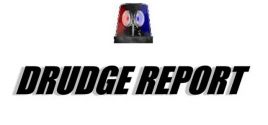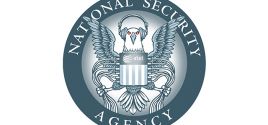EFF Receives First Set of FOIA Documents on the FBI's Misuse of National Security Letter Authorityby Marcia HofmannElectronic Frontier Foundation Jul. 11, 2007 |
Popular 
John Hagee Cheers Israel-Iran Battle as 'Gog and Magog War,' Will Lobby Congress Not to Deescalate

Right-Wing Media See Traffic Plummet in Wake of Algorithm Changes by Facebook, Google

Patriot ACT on Steroids: FISA Bill Forces 'An Enormous Range' of Businesses to Act as NSA Spies

Congress Introduces ADL-Backed 'Countering Antisemitism Act' to Police Online Speech

Israel to Extend Water Agreement With Jordan 'For Helping Shoot Down Iranian Drones'
 EFF has obtained FBI documents showing years of chronic problems with its use of National Security Letters (NSLs). The issue first drew widespread attention four months ago, when the Department of Justice Office of the Inspector General released a report [31M PDF] revealing extensive misuse of NSLs in a sampling of four FBI field offices. These findings were, unfortunately, not surprising to critics of the Bureau's NSL power. Before the USA PATRIOT Act was passed in 2001, the FBI could unilaterally issue these demands only to obtain the records of suspected terrorists or spies. Under the changes made by the controversial anti-terrorism law, however, the FBI can now use NSLs to get telephone, Internet, financial, credit, and other personal records about anybody -- without any court approval -- as long as it believes the information could be “relevant” to an authorized terrorism or espionage investigation. (The House of Representatives is considering a bill that would add independent oversight to the NSL process, but the legislation hasn't moved since March.) In the wake of the inspector general's report, EFF filed a Freedom of Information Act lawsuit seeking fundamental information about the FBI's misuse of the NSL authority, and a federal judge recently ordered [PDF] the Bureau to release information responsive to EFF's request on a rolling basis. On Friday, July 6, the FBI made its first disclosure of 1,138 pages of documents, all of which you can view here. (Please keep in mind that this is the first of many sets of documents we'll be receiving, so this material does not present a complete picture.) Here's what we've spotted that we think is most interesting so far. The FOIA documents show, however, that several cases were forwarded to the Board between April 2005 and February 2007. Attorney General Alberto Gonzales was copied on these referrals, despite congressional testimony in April 2005 that he was unaware of any civil liberties violations arising from the PATRIOT Act, and a March 2007 speech in which he claimed to be “upset” and "concerned" by the inspector general's findings. |



